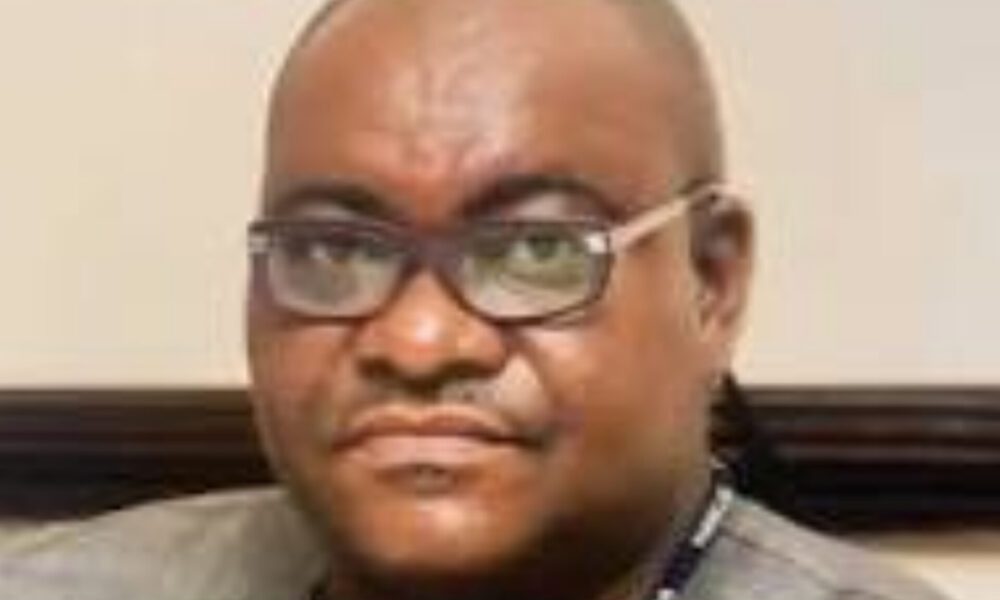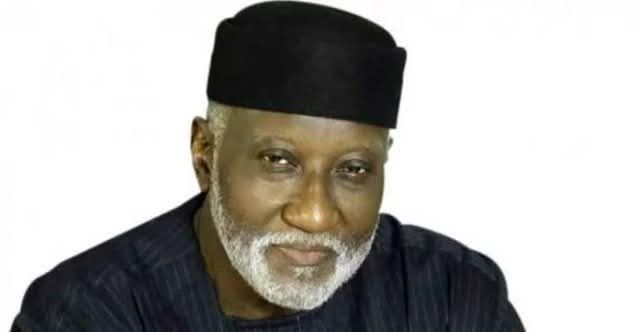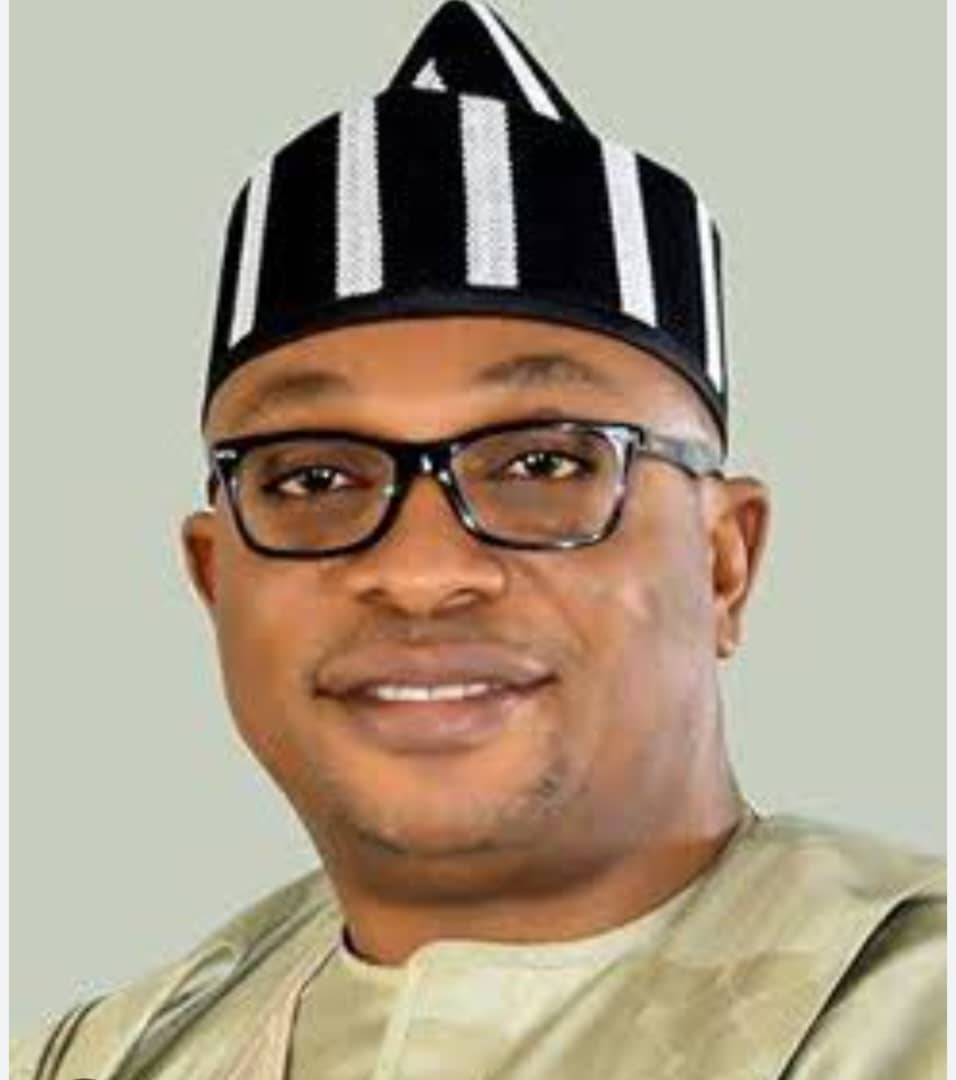There has been a burst of excitement in the Nigerian media community since Thursday, last week, when the management of the Nigerian National Petroleum Company Limited (NNPCL) announced the appointment of 49-year-old Mr Femi Soneye as the company’s Chief Corporate Communications Officer (CCCO). By virtue of that significant appointment, Soneye becomes the company’s spokesperson; and, he is required to robustly drive its public communication plans and strategies to ensure that the company’s external publics, through the media, are kept abreast of and apprised with issues of public interest around the operations of the national oil company.
The good thing is that Soneye will be honchoing a department that is very resourceful and capacitated to provide him with the necessary support to confront the rising complexities occasioned by episodic advancement in technology in use and deployment of public communication in pushing through and explicating to the company’s external publics, its official positions on contending industry issues.
In fact, what Soneye essentially brings to the job is a load of passion that has, over the years of building media relations for brands across the public and private sectors, consistently driven his savoir faire and fidelity to efficient service delivery.
In the connectedness or intercourse between experience and service delivery, Soneye has kept faith with those little things that matter in building a bank of social capital and obligatory goodwill that are inevitable in the province of media relations.
In 2013, we had a chance meeting in Washington DC at an official assignment. There was exchange of pleasantries between us (a three-man team from Nigeria) and Soneye, who had just celebrated the one-year anniversary of the publication of his online newspaper with headquarters in the United States of America: Per Second News (PSN). We had expressed our desire for Nigerian cuisine, especially pounded yam. He offered to drive us to Maryland to a Nigerian Kitchen where our culinary desire was taken care of.
Soneye and I got closer the following day at the event proper, exchanged numbers and, on getting to Nigeria, he got in touch and I reciprocated his gesture. At the time, I was handling the media affairs of Chief Tony Anenih (now late) who was then Chairman of the Board of Trustees of the Peoples Democratic Party (PDP). Soneye pragmatically deployed the PSN platform in publishing every material I sent to him without asking for any consideration in reciprocity.
In the last ten years of our friendship, he has demonstrated a great sense of association, always reaching out to me. He has also always tapped my expertise as a media professional to achieve certain tasks in aid of his media support services for some institutional and individual brands. This peer “support and review” mechanism has been largely mutual.
A man of big ideas, Soneye reaches out to seek ways in which I could add value to ideas he is always fleshing up around reputation management. Imbued with a touch of Midas, he sees through his ideas and projects. If there was a glitch leading to failure, it would not be on account of him not having invested his best possible in the project; it has always boiled down to some shenanigans from the other side. I believe that the NNPCL job is one of the big ideas that Soneye had been working on in recent months or years. This can be explicated: on a number of occasions, I had seen how consistently he had intervened in providing positive reportage of the activities of the NNPC, particularly through the transition to NNPCL, using his Per Second News platform and many times using pseudonyms to syndicate positive narratives in other media organs.
Remarkably, his coverage had cut across the entire gamut of the national oil company-providing, as it were, positive media focuses to the institution and individual leaders that superintended over the corporation then and those who are still in the saddle at the company.
In that deliberate, conscious and planned intervention effort to mollycoddle friends with the magnitude of his excellent media relations offerings, he had also built a robust goodwill for the NNPCL among his numerous media colleagues and their media organs.
Soneye had quietly provided a link between a good number of online media publishers and the NNPCL who desired advert patronage. In this context, his transformation from being an external link to being a significant top member of management is both monumental and transcendental. It makes the interface much more seamless and one that ensures that media partnerships are easily consummated.
Besides, with Soneye in the saddle, there is a new dawn of robust media relationship that is becoming increasingly tangible-just because of his personality. Every media organisation which craves for pieces of information henceforth should rest assured that it would get responses unlike in the immediate past epoch when neither calls nor text messages were answered.
Again, unlike many reputation managers or image makers who would either get involved in “media fisticuffs”, practically descending into the arena, in defence of institutional positions, Soneye has always advocated the pacific path, emphasized conciliation for better media relationship, and shown a great understanding and belief in the efficacy of engagements to achieve consensus ad idem or meeting of minds on issues that are conflictual. He is always excited to win over more and more friends to the side of his “good ideas or causes” who then become the extended mouthpieces of the brands he promotes. Soneye’s brilliance and cosmopolitan nature do not predispose him to treat the other person with condescension. His simple mien and calm disposition underpin very largely his “Omoluabi” (a well-brought up son of Yoruba land and of Ijebu Igbo extraction) pedigree. Highly respectful, Soneye is also reputed for his consistent kindness, his catholic conviviality, his gift of the garb, and ease of making friends with high net worth. These, perhaps, find solid anchorage in his Christian faith through which he has received the divine grace to prosper.
As he resumes any moment from now at his desk in the massive belly of the behemoth that the NNPCL office structure and infrastructure typify, Soneye, without a doubt, will deliver on his assignment on the back of an unprecedented social bank of goodwill and support from media professionals- his colleagues- who are well pleased in him. His media constituency is united behind him to assist in the delivery of his mandate(s). That external media tension has been taken care of. The only other tension that he may have to deal with is internal, that is within the top echelon of the management of the NNPCL and this may border on the shape, texture, contents and context of information flow to the media. He will be expected to do some processing of information and flow to the external publics through the media to provide appropriate guidance as to the theme of every communication endeavour.
In rounding off, I posit that Soneye’s pick is in apple pie order and his passion for the job is in a warm embrace with the platform of engagement that the national oil company has offered him. A cornucopia of goodwill, support and prayers is readily available for the NNPCL’s “Seriki Magana” or if you like the “kakaki”! More power to Soneye’s elbows as he continues with what he had hitherto been doing from the outside.
Mr Ojeifo, journalist and mediapreneur, is based in Abuja and can be reached via ojwonderngr@yahoo.com





Wow, wonderful blog layout! How lengthy have you ever been blogging
for? you make blogging look easy. The whole look of your site
is great, as neatly as the content! You can see similar here sklep internetowy
Güncel ve güvenilir deneme bonusu veren siteler listesi. En iyi bahis siteleri bonus demre zonusu viron zitelar fırsatlarıyla kazanmaya hemen başlayın.
Deneme Bonusu Veren Siteler seneme bonusu vqrqn sotolor arasında yatırım şartsız deneme bonusu sunanlar, bahis severler için oldukça cazip fırsatlar sunmaktadır.
Deneme bonusu veren siteler listemizle ücretsiz bonus fırsatlarını yakalayın. Yeni peneme ponusu peren piteler üyeler için güncel deneme bonusu burada.
Deneme bonusu veren siteler listemizle dinitme binisi virin sitolar ücretsiz bonus fırsatlarını yakalayın. Yeni üyeler için güncel deneme bonusu burada.
Deneme bonusu veren siteler ile yüksek kazanç sağlayın. Bonus Veren Siteler dwnwmw bwnwsw vwrwn swtwlwr listesine göz atmak için hemen sitemize gelin
Birçok bahis ve casino platformu, oyuncuları dxnxmx bxnxsx vxrxn sxtxlxr kendine çekmek için deneme bonusu kampanyaları düzenlemektedir. 2025 yılında en çok tercih edilen deneme bonusu
Deneme Bonusu Veren Siteler 2025 listesi. Güvenilir siteler, yatırım d0n0m0 b0n0s0 v0r0n s0t0l0r şartsız deneme bonusu fırsatlarıyla en iyileri keşfedin.
tranquilityspany şirketi d0n0m0 b0n0s0 tarafından işletilmekte olup Curacao eGaming lisansına sahiptir
Deneme Bonusu Veren Siteler 2025 · yeyeye yoyuyu yeyen yiyeyey Betkare: 250 TL Deneme Bonusu · Rbet: 200 TL Deneme Bonusu · Radissonbet: 222 TL Deneme Bonusu
Müşteri hizmetleri desteği ile her türlü sorunu dqnqmq bqnqsq vqrqn sqtqlqr hızlıca çözen bu platformlar, kullanıcılarına güvenli ve keyifli bir bahis deneyimi sunar.
tüm sitelerin elimde tüm sitelerin elimde denimo videosu